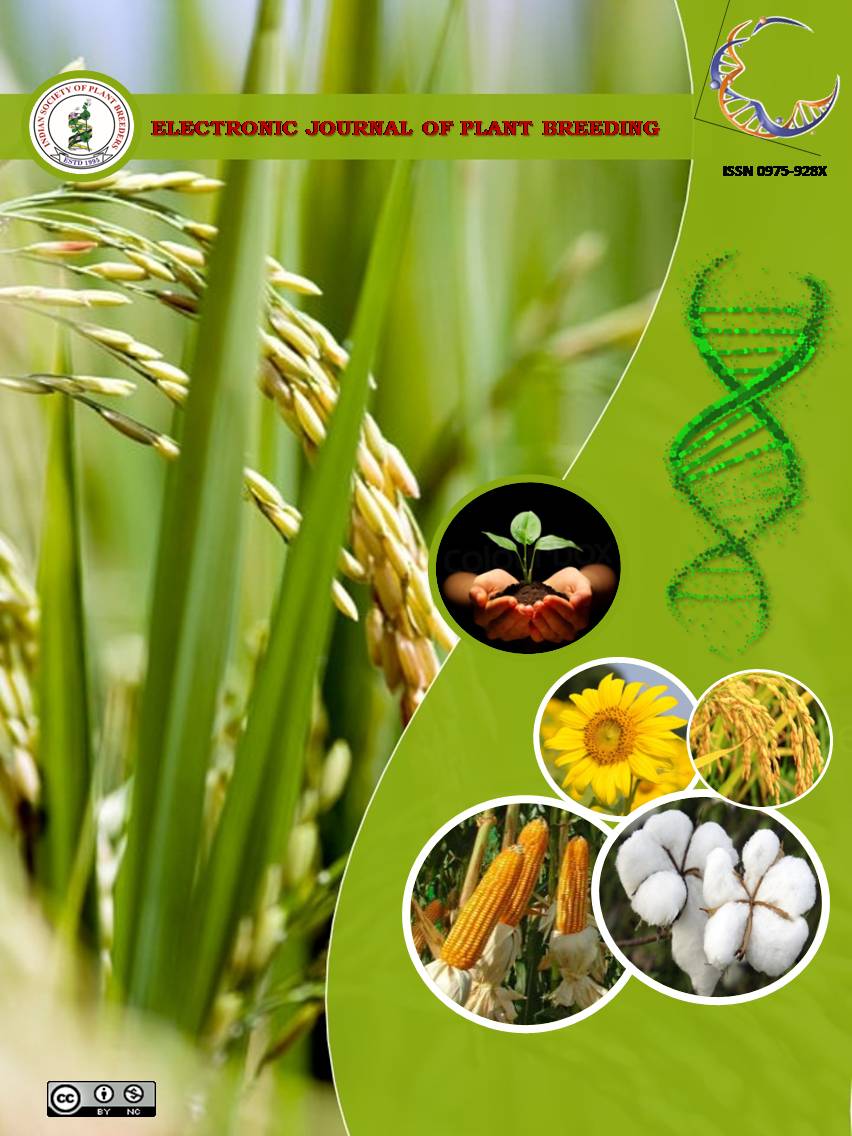Genetic divergence, traits association, path analysis and harvest index in pigeonpea (Cajanus Cajan L.)
Abstract
Twenty six genotypes of pigeonpea were evaluated for 13 agro-morphological characters. Statistical analysis was carried out for estimation of various parameters. The ICPL-87 being shortest genotypes possessed the minimum number of branches, minimum pod weight, lowest 100-seed weight, shortest root length, lowest biological yield per plant and minimum yield per plant. Among all the genotypes, NDA-1 was the tallest genotype. The highest harvest index was showed by NDA-2009-1. Considering the performance of all the genotypes for important characters, including yield, the genotypes; NDA-2009-1, PUSA-992, DA-10-2, MAL-6, ICPL-87 and BRG-2 were promising. Root weight showed very high estimate of genetic advance (85.53%). The value of genetic advance was lowest for root length (20.89%). The residual effect (0.064) indicated that the thirteen characters included in this study explain 93.6 per cent of variation in yield in this population. Plant height, pod weight, root weight and harvest index were positively associated with seed yield simultaneously with positive direct effect. Therefore, direct selection against this character would be effective for seed yield improvement in pigeonpea.

It is certified that:
- The corresponding author is fully responsible for any disputes arising due to the publication of his/her manuscript.
- The article has been seen by all the authors who are satisfied with its form and content.
- The sequence of names of authors in the by-line is as per their relative contribution to this experiment, giving due credit to all scientists who made notable contribution to it.
- All the authors fully understand that inclusion of any other co-authors or exclusion of any co-authors is not possible once the article has been submitted to the journal.
- The corresponding author takes full responsibility for this article.
- The address of the organization where the research was conducted is given.
- The article is exclusive for this journal, and the results reported here have not been sent (and will not be sent during its consideration by this journal) for publication in any other journal.
- Authors agree to abide by the objective comments of referees and do agree to modify the article into a short note as per the recommendation, for publication in the Electronic Journal of Plant Breeding.
- If published in Electronic Journal of Plant Breeding, the copyright of this article would vest with the Indian Society of Plant Breeders, who will have the right to enter into any agreement with any organization in India or abroad engaged in reprography, photocopying, storage and dissemination of information contained in it, and neither we nor our legal heirs will have any claims on royalty.


